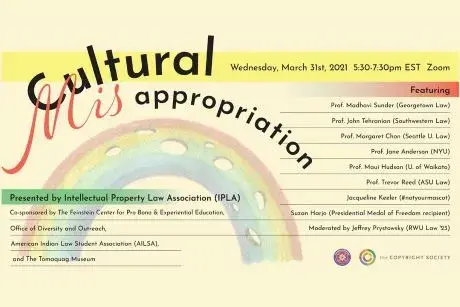What is Cultural Misappropriation and Why Does it Matter?

Cultural appropriation (or cultural misappropriation) is defined as "the adoption or exploitation of another culture by the more dominant culture." (See Ijeoma Oluo's So You Want to Talk about Race?, chapter 10)
It has also been defined as, “[t]aking intellectual property, traditional knowledge, cultural expressions, or artifacts from someone else's culture without permission. This can include unauthorized use of another culture's dance, dress, music, language, folklore, cuisine, traditional medicine, religious symbols, etc. It's most likely to be harmful when the source community is a minority group that has been oppressed or exploited in other ways or when the object of appropriation is particularly sensitive, e.g. sacred objects.” (See Who Owns Culture? Appropriation and Authenticity in American Law by Susan Scafidi)
On Wednesday, March 31, 2021, several organizations within and without the RWU Law community are holding an event about the misappropriation of indigenous culture. This conversation between legal experts and activists will cover copyright and trademark issues of cultural misappropriation in areas such as sports (Harjo v. Pro Football and its relationship with Matal v. Tam), fashion (Urban Outfitters v. Navajo), photography, and music on reservations. The program will also be discussing traditional knowledge labeling.
In support of this programming, the law library has created a lawguide which contains a variety of resources on the topic of the cultural appropriation of indigenous cultures. This guide has links to biographical information on the speakers and a selection of books, articles, and web resources to help dive into this important area of scholarship. If you have any questions about the guide or need additional resources on this topic, please email the Reference Desk at lawlibraryhelp@rwu.edu.
Library Blog

